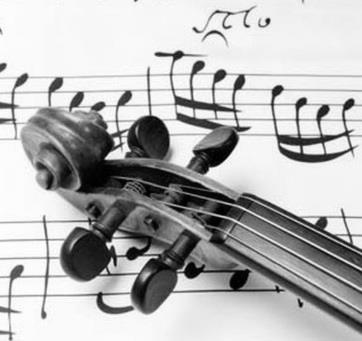
13 minute read
Group 4 The Sciences


IB BIOLOGY
Prerequisites GCSE Double Award Science (or Biology) grade 66, or Separate Science Biology and Chemistry Grades 6.
Extra-Curricular Opportunities
Biology field work. The Biology Society ('BioSoc') –a range of topical lectures by external speakers, and visits. Further Biology - seminars aimed at stimulating the interest of the more ambitious pupils. CREST award. The British Biology Olympiad competition.
Possible Career Pathways
Range from agriculture to medicine, sport science to zoology. Biology is a natural partner to Chemistry, and has areas of overlap with Physics and Geography allowing entry to Biochemistry, Biophysics and Biogeography courses. It is a versatile qualification.
DIFFERENCE BETWEEN GCSE and IB: IB Biology progresses naturally from GCSE but with greater detail. The approach is more analytical and more quantitative. The SL level course offers a smoother transition from GCSE and is a good general Biology course for non-specialists.
ORGANISATION OF WORK: Students will be expected to do background reading in preparation for lessons, and maintain an orderly folder. Teaching will be split between two teachers to correspond to the different topics.
Topic Covered Assessment Method % of grade
Higher Level Core topics: Cells; Molecular Biology; Genetics; Biochemistry; Ecology; Human physiology Additional Higher level material (AHL): Nucleic acids; Metabolism; Plant Biology; Genetics and Evolution; Animal Physiology.
Paper 1 40 multiple-choice questions on core and AHL material. 1 hour exam 20%
Paper 2 Data-based questions on core and AHL material.
Paper 3 Section A: experimental skills and techniques, analysis and evaluation using unseen data linked to the core material and AHL material. Section B: Questions from one option.
IA
One scientific investigation. 2¼ hour exam 36%
1¼ hour exam 24%
Externally moderated 20%
Standard Level Core topics: Cells; Molecular Biology; Genetics; Biochemistry; Ecology; Human Physiology
Paper 1 30 multiple-choice questions on core material. ¾ hour exam 20%
Paper 2 Data-based questions on core material.
Paper 3 Section A: experimental skills and techniques, analysis and evaluation, using unseen data linked to the core material. Section B: Questions from one option. 1¼ hour exam 40%
1 hour exam 20%
IA
One scientific investigation. Externally moderated 20%

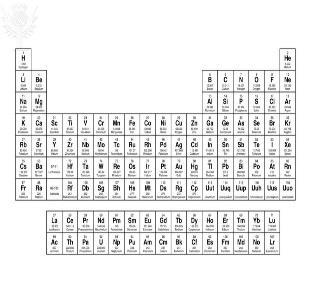
IB CHEMISTRY
Prerequisites
GCSE Dual Award Science Grade 66 or Chemistry Grade 6 or equivalent. (At least a grade 6 but preferably grade 7 in the Chemistry paper.)
Extra-Curricular Opportunities
Opportunities will include practical extension sessions, discussion groups, Olympiad challenge, a trip to a student conference and visiting speakers.
Possible Career Pathways Chemistry HL is essential for those considering Medicine, Dentistry or Veterinary Science. Students will acquire a wide variety of skills which are useful in many careers. To find out about your future in chemistry see www.RSC.org.
DIFFERENCE BETWEEN GCSE and IB Higher Level/Standard Level: IB students should be able to build upon the skills developed within GCSE, particularly in terms of quantitative chemistry, energetics, organic chemistry and bonding. There is an increase in the level of mathematical demand required for both HL and SL and smaller groups ensure that students develop really confident practical skills.
ORGANISATION OF WORK: Teaching will be split between two teachers covering different topic areas within the syllabus. Students will be expected to use their textbooks and notes to support the development of their understanding as they work through the course. Background reading from journals such as Chemistry Review will be essential in developing ideas for the IA.
Higher Level Topic Covered
Paper 1 Multiple choice questions on core and AHL content across all topics including atomic structure, periodicity, and bonding. Paper 2 Short-answer and extended response questions on core and AHL content across all topics including thermochemistry, kinetics, organic chemistry, acids and bases and redox processes. Paper 3 A data based question based on material from the core and AHL as well as from experimental work, in addition to questions from one area chosen between: Materials, Biochemistry, Energy or Medicinal Chemistry.
IA
Standard Level
One individual scientific investigation as for SL.
Paper 1 Multiple choice questions on core content across all topics as for HL.
Paper 2 Short-answer and extended response questions on core content across all topics as for HL. Paper 3 A data based question based on material from the core as well as from experimental work, in addition to questions from one option.
IA
One individual scientific investigation incorporating aspects of exploration, analysis and evaluation. IA 20%
Assessment Method
Paper 1 1hr
Paper 2 2 hr 15 min
Paper 3 1hr 15min
IA
Paper 1 45min
Paper 2 1hr 15 min
Paper 3 1hr
% of grade
20%
36%
24%
20%
20%
40%
20%
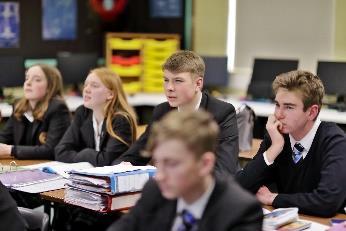
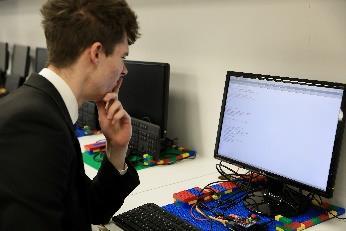

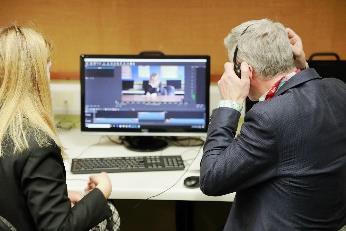
IB COMPUTER SCIENCE (SL)
Prerequisites GCSE Computer Science is desirable, but not required; the course can be studied without having studied it previously. Some programming experience would help, though programming is taught on the course and fully supported by video tutorials for students wishing to learn at their own pace.
Extra-Curricular Opportunities
Students have the opportunity to go on a variety of field trips, including visits to The National Museum of Computing at Bletchley Park and Warwick University Computer Science in Action. Students may opt to take the British Informatics Olympiad competition in December.
Possible Career Pathways
We stand on the brink of a technological transformation, known as the Fourth Industrial Revolution, that will fundamentally alter the way we live, work and relate to one another. In its scale, scope and complexity, the transformation will be unlike anything humankind has experienced before. We do not yet know just how it will unfold, but one thing is clear: an understanding of the fundamentals of computers and the ability to read and write code is becoming increasingly important for every aspect of our lives. Aspects of Computer Science permeate every industry, as well as every corner of our lives. For this reason it successfully combines with many other disciplines within the IB DP curriculum to reach myriad careers, such as: Geography as a pathway into Geoinformatics; Business Management / Economics as a pathway into Data Science; Psychology as a pathway into Cognitive Science; and Visual Arts as a pathway into Game Design. In addition, it can also directly lead into software engineering, database administration, cyber security, games design and web development, or simply add breadth to your IB DP portfolio of courses. Whatever your interest, an understanding of Computer Science principles and core skills seems a valuable investment given the technological changes afoot in society.
DIFFERENCE BETWEEN GCSE and IB DP Standard Level: IB students should be able to build upon the skills developed by GCSE, particularly programming. Students have a greater degree of control over their study with the selection of an Option for Paper 2 which can be made on an individual basis.
ORGANISATION OF WORK: Students will be expected to complete preparation work for lessons and maintain an orderly folder. Written questions, group research/presentations and project work will be set.
Standard Level Topic Covered
Core Theme System fundamentals, Computer organisation, Networks, Computational thinking, problem-solving and programming. 1 Option Databases, Modelling & simulation, Web science, Object-oriented programming (OOP)
Programming Project
Practical application of skills through the development of a product and associated documentation IA 30%
Assessment Method
% of grade
Paper 1 45%
Paper 2 25%

IB DESIGN TECHNOLOGY
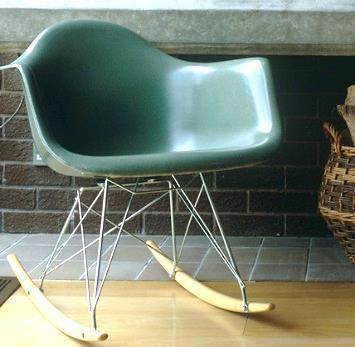
Prerequisites
Extra-Curricular Opportunities
It is possible to study Design Technology with no previous experience, but students wishing to do this should first discuss this with Mr Weston. Preferably, students will have taken GCSE Design and Technology or another similar course.
The department is open after games on Tuesday/Thursday afternoons so that students wishing to use the facilities can continue with their work. The department is also open on Saturday and Sunday afternoons 2.00-5.30pm. DT visits include factory tours in the UK and an optional trip to Bologna. In addition, we invite guest speakers to the school to lecture on engineering, product and sustainable building design. Pupils can also participate in the Engineering Education Scheme.
Possible Career Pathways Most students go to their first choice university, many of which choose to study a Product Design, Industrial Design, Architecture or Engineering degree. Universities include Newcastle, Leeds, Brunel, Northumbria and Loughborough.
DIFFERENCE BETWEEN GCSE and IB Higher Level/Standard Level: Students should be able to build upon the skills developed by GCSE, particularly in the design and make project which accounts for 40% of the final mark. Syllabus content includes the study of human factors and ergonomics, sustainable production, modelling strategies, classic design, innovation and design material properties and commercial production. Higher level topics include user centred design, innovation and markets. Design Technology is a Group 4 Sciences subject.
ORGANISATION OF WORK: Students will be expected to complete some preparation work for lessons, and maintain an orderly folder. Written questions, group research/presentations and project work will be set.
Higher Level Topic Covered Assessment Method % of grade
Standard Level
40 Multiple-choice questions on the core and HL material. Paper 1 20% One data-based question, several short and extended answer Paper 2 20% questions based on the core. 3 structured questions on the HL extension material. Paper 3 20% Project – Design, make and evaluate a marketable outcome. IA 40%
30 Multiple-choice questions on the core material. One data-based question, several short and extended answer questions based on the core. Paper 1 30% Paper 2 30%
Project – Design, make and evaluate a marketable outcome. IA 40%
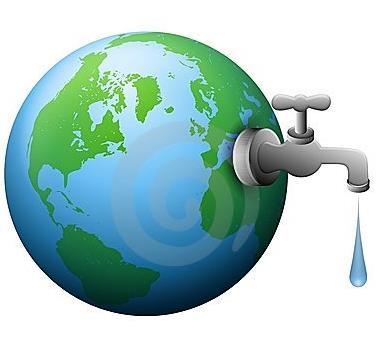
IB ENVIRONMENTAL SYSTEMS AND SOCIETIES
Prerequisites
Preferably GCSE Biology and Geography but not essential. An interest in global environmental issues would be beneficial.
Extra-Curricular Opportunities
Fieldwork, local sites and residential in Pembrokeshire. Visits to Twycross Zoo, Rutland Water, and the local aquarium. Guest speakers and specialists from the local environment.
Possible Career Pathways
To study at degree level in Environmental Sciences/Management, Biogeography, Development and Cultural Affairs, International Relations, Environmental Law, Environmental Engineering.
DIFFERENCE BETWEEN GCSE and IB Higher Level/Standard Level: There is only a Standard Level course offered in this subject. It is a transdisciplinary subject fulfilling the requirements of both groups 3 and 4 and meets the aims of both groups. This course has a Holistic approach allowing students to make reasoned and balanced judgements using appropriate, economic, historical, cultural, socio-political and scientific sources. Therefore, it prepares students for many disciplines.
ORGANISATION OF WORK: Students will be expected to do individual and group background research in preparation for lessons and investigation of case studies.
The aim of this course is to provide students with a coherent perspective of the interrelationships between environmental systems and societies. Topics studied include:
Systems and models The Ecosystem Human Population and Recourse Use Conservation and Biodiversity Pollution Management Issues of Global Warming Environmental Value Systems
Standard Level Topics Covered
Paper 1 Short answer and data based questions. Paper 2 Section A: An Environmental Impact Assessment [Resource Paper] Section B: Two structured essay questions.
IA A series of scientific investigations both laboratory and fieldwork based. A portfolio of practical work is built up over the course.
Assessment Method % of grade
1 hour exam 30%
2 hour exam 50%
Continuous assessment 20%

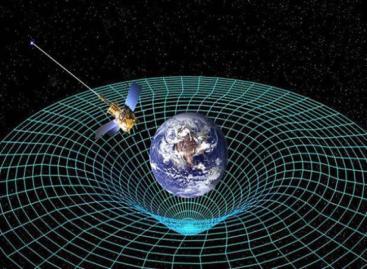
IB PHYSICS
Prerequisites The standard GCSE subjects which support the IBDP course are Maths, Physics and Chemistry. Ideally you should have at least Grade ‘B’ or 6 but preferably ‘A’ or 7 in Physics and Maths.
Extra-Curricular Opportunities
Huge amounts including The Physics Society, Further Physics and extra FP sessions in the evenings, the Engineering Scheme, CREST, EPQ, The Physics Challenge and Olympiad and a Physics Books Club.
Possible Career Pathways
Physics is important for Engineering, Design or Architecture, Medicine, Dentistry or Veterinary Science, Physiotherapy or Sports Science, Metallurgy or Materials Science, Geology or Environmental Science, Computer Science or Archaeology. It is a key qualification for those interested in Chemistry, Mathematics, Biology, Pharmacy, Philosophy and Psychology.
DIFFERENCE BETWEEN GCSE and IB Higher Level/Standard Level: GCSE is the start of a journey for Physics. It lays down the foundation that the later levels build on. It is important to get the GCSE knowledge as strong as possible when you remember that Physics is the study of nature. By this we mean absolutely everything from objects smaller than atoms to objects larger than the universe! In Physics we try to understand nature – try to explain why everything is the way it is. This makes Physics the major pure science. It underpins all other pure and applied sciences as well as most areas of engineering and medicine.
‘How’ and ‘why’ are important questions for the Physicist – knowing that something happens is not good enough. The Physicist tries to understand the basic reasons driving all events. Physics explores such questions as “Why is the sky blue?”; “What makes the sun shine and what will happen when the sun dies?”; “What is matter made of?”; “How do forces push and pull?”; “How did the universe begin and will it ever end?”. Physics explains how a pile of sand may be an opaque solid (a ‘brick’), a transparent solid (glass) or the chip at the heart of every computer.
ORGANISATION OF WORK: The courses are taught by one (SL) or two (HL) teachers and, like all subjects in Alevel or IB, students are expected to pour effort into the subject to ensure they get a grip of all they meet. Topic areas are:
Higher Level Topic Covered
Mechanics, Electricity, Astrophysics, Fields and Forces, Thermal, Atomic and Nuclear, Waves, Energy and Power
Standard Level
Mechanics, Electricity, Astrophysics, Fields and Forces, Thermal, Atomic and Nuclear, Waves, Energy and Power
Assessment Method
Paper 1 Paper 2 Paper 3 IA
% of grade
20% 36% 24%
20%
Paper 1 Paper 2 Paper 3 IA 20% 40% 20%
20%


IB SPORTS, EXERCISE AND HEALTH SCIENCE
Prerequisites No prerequisites but an interest in sport is essential.
Extra-Curricular Opportunities
Possible Career Pathways
Sports scientist; physiologist, psychologist, biomechanist. Sports agent, sports media, physiotherapy, teaching, coaching.
DIFFERENCE BETWEEN GCSE and IB Higher Level/Standard Level: The IB SEHS sits as a group IV option and considers the science behind sport. Much of the content covered looks at how sports science is used to develop élite performers and improve the health of the nation.
ORGANISATION OF WORK: Skills of being a sports scientist are learnt and opportunity is given to put this into practice by designing and carrying out experiments through the IA.
Standard Level
30 multiple-choice questions on the core syllabus; Anatomy, Exercise Physiology, Energy Systems, Movement Analysis, Skill in Sport, Measurement and evaluation of human performance.
Section A: one data-based question and several short answer questions on the core syllabus Section B: one extended- response question (choice of 3).
Several short answer questions in the two options studied: Psychology of Sport and Nutrition for sport, exercise and Health.
30 hours of individual investigation 10 hours on Group 4 project. Paper 1 – 45 min exam
Paper 2 – 1 hour 15 min exam
Paper 3 – 1 hour exam
IA 20%
32%
24%
24%





